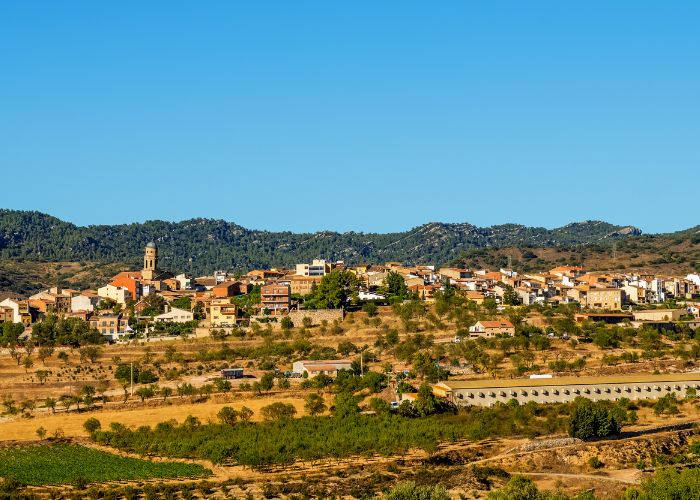SOLSONA – The Catalan government wants to breathe new life into the countryside with a new plan to repopulate it. The idea is to offer refugees a job and a home in small villages where depopulation is a problem.
The Guardian writes about Orwa Skafe. He fled Syria seven years ago and now has a job and a house in a small village 900 metres in the Pyrenees. In doing so, he is one of the first to benefit from the Catalan government’s program called Operation 500. New residents end up in villages with less than 500 inhabitants.
Participants receive a home and job for one year
The repopulation plan is being implemented through a collaboration between the regional employment office, the equality commission and the Association of Micro-villages. Furthermore, participants are offered a home and a salary of €19,434. This is paid through the municipality. The job is also arranged by the municipality. Initially, 30 families will be housed in 25 municipalities.
Only asylum seekers, refugees and immigrants legally residing in Spain are eligible for the programme. So far, 30 families have been taken care of, 24 of whom are refugees. People from the Micro-Villages Association help participants with the integration process, learning the language and becoming independent.
The idea of the program is that people first integrate into villages where there is already a social network. A mentor program helps them with this. Later, when they speak the language and are integrated, they can move to a city.
Orwa Skafe from Syria
Skafe first stayed in Haiti for a while, but did not find it safe enough there and travelled to Spain last January. There he was granted asylum after a month. Now he lives in the mountain village of Tirvia with 130 inhabitants and close to the border with France. He carries out maintenance and cleaning work.
He says he is very happy in the Spanish mountain village. Moreover, he was mainly looking for peace and nature. But he did not find it in Barcelona. Furthermore, little by little he begins to master the language as the only foreigner in the village. “People are very hospitable, everyone talks to me, they offer me help or to do my shopping. That is 90% the case. However, of course, there are always people who don’t like strangers,” he says in The Guardian.
Related: Many villages in empty Spain are in danger of disappearing within two years
His fervent wish is that his wife and child, who are still in Syria, can join him as soon as he receives a residence permit. He does not see going back to Syria as an option. “I want to stay in the village when the program ends and I want my family to live here with me. I’m going to work hard to stay here.”
Marilu Arqueta and children in Ulldemolins
La Vanguardia tells the story of Marilú Arqueta, her two daughters and her son, aged between 10 and 19. Arqueta, who comes from El Salvador, has been contracted by the municipality of Ulldemolins to do cleaning work in the various municipal facilities. The challenge now is for Arqueta and other families to remain in the villages after a year and thus contribute to reducing the loss of inhabitants.
Ulldemolins depends mainly on olive cultivation and lost almost a hundred of its 500 inhabitants in 15 years. More than 35% is older than 65 and only 8% are younger than 14 years. Therefore, the arrival of refugees with young children should help offset these figures.
Origin of participants
The first participants in the repopulation program are from Ukraine (8); Syria and Colombia (4); Afghanistan (3); Venezuela (2); Pakistan (2) and Ecuador, Georgia, El Salvador, Honduras, Morocco, Peru and Uruguay, one each. Of this, 57% are male, and 43% female with an average age of 39 years. Twenty-six have settled in the villages with children or other relatives, representing an additional 48 people.
Related: Hemp cultivation as a solution for empty Spain
The occupations pursued by these new residents include gardening, janitors, sheriff’s assistants, maintenance, and cleaning.
Program details are yet to be completed
The program kicked off this month with high expectations, but details are yet to be finalised. The role of mentors is very important. Each family should end up in the village that best suits their needs. In addition, children and young people who have moved with their parents must receive a guaranteed education.


